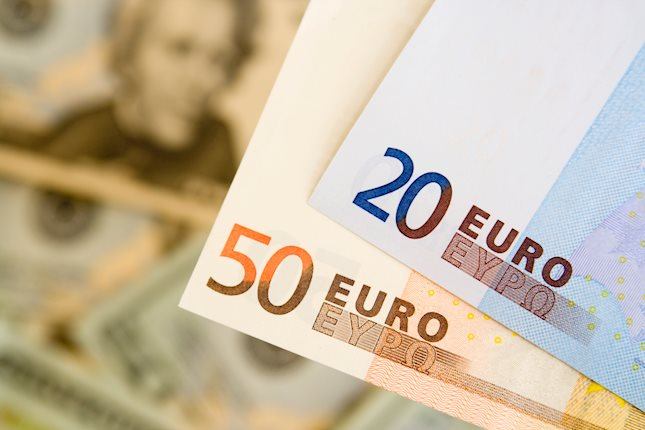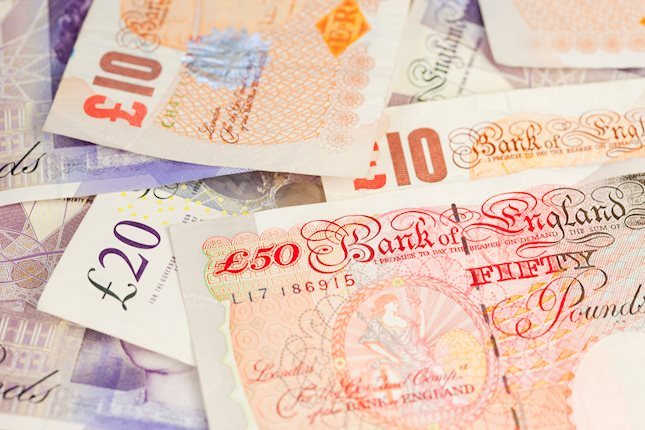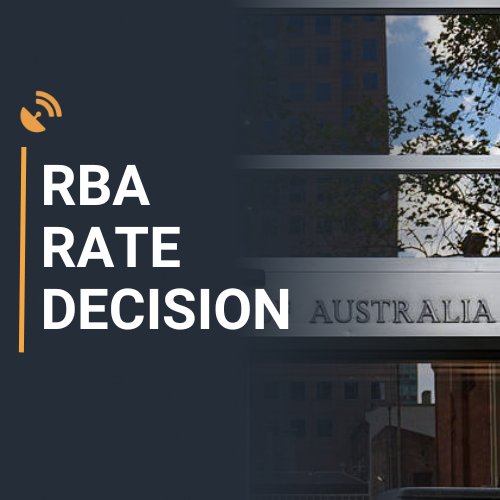- EUR/GBP remains in the negative territory after the release of the economic data from both economies.
- The UK ILO Unemployment Rate (3M) (Aug) eased to 4.0%, down from July’s 4.1% reading.
- The annual inflation in France increased by 1.1%, while in Spain, it was recorded at 1.5% in September.
EUR/GBP continues to lose its ground for the third successive day, trading around 0.8350 during the European session on Tuesday. The EUR/GBP cross remains subdued following the release of mixed employment data from the United Kingdom (UK).
The UK ILO Unemployment Rate fell to 4.0% in the three months leading up to August, down from 4.1% in July and below the market forecast of 4.1%. Employment Change for August saw a notable increase of 373,000, up from 265,000 in July. Meanwhile, Average Earnings excluding Bonuses grew by 4.9% year-on-year for the same period, meeting expectations but slightly below the 5.1% growth registered in July.
Traders will likely focus on a series of key economic data from the United Kingdom, set to be released on Wednesday, including the Consumer Price Index (CPI), the Producer Price Index (PPI) and the Retail Price Index. These data releases could influence the Bank of England's (BoE) policy outlook. However, BoE officials have indicated that they may resume rate cuts at the upcoming meeting in November.
In the Eurozone, France's Consumer Price Index (CPI) fell by 1.2% month-over-month in September, following a 0.5% increase in August. This marks the sharpest monthly decline in prices since the series began in 1990. Year-on-year, inflation rose by 1.1%, down from 1.8% in August, primarily driven by significant drops in energy prices and a slowdown in service costs.
In Spain, annual inflation stood at 1.5% in September, the lowest level since March 2021, down from 2.3% in the previous month. Monthly inflation decreased by 0.6% in September, as expected, while annual core inflation also fell by 2.4%.
According to the October 2024 Bank Lending Survey (BLS), euro area banks noted the first negative impact of the European Central Bank's (ECB) interest rate decisions on their net interest margins since the end of 2022. Meanwhile, the effects on volumes of interest-bearing assets and liabilities continued to be negative.
Inflation FAQs
Inflation measures the rise in the price of a representative basket of goods and services. Headline inflation is usually expressed as a percentage change on a month-on-month (MoM) and year-on-year (YoY) basis. Core inflation excludes more volatile elements such as food and fuel which can fluctuate because of geopolitical and seasonal factors. Core inflation is the figure economists focus on and is the level targeted by central banks, which are mandated to keep inflation at a manageable level, usually around 2%.
The Consumer Price Index (CPI) measures the change in prices of a basket of goods and services over a period of time. It is usually expressed as a percentage change on a month-on-month (MoM) and year-on-year (YoY) basis. Core CPI is the figure targeted by central banks as it excludes volatile food and fuel inputs. When Core CPI rises above 2% it usually results in higher interest rates and vice versa when it falls below 2%. Since higher interest rates are positive for a currency, higher inflation usually results in a stronger currency. The opposite is true when inflation falls.
Although it may seem counter-intuitive, high inflation in a country pushes up the value of its currency and vice versa for lower inflation. This is because the central bank will normally raise interest rates to combat the higher inflation, which attract more global capital inflows from investors looking for a lucrative place to park their money.
Formerly, Gold was the asset investors turned to in times of high inflation because it preserved its value, and whilst investors will often still buy Gold for its safe-haven properties in times of extreme market turmoil, this is not the case most of the time. This is because when inflation is high, central banks will put up interest rates to combat it. Higher interest rates are negative for Gold because they increase the opportunity-cost of holding Gold vis-a-vis an interest-bearing asset or placing the money in a cash deposit account. On the flipside, lower inflation tends to be positive for Gold as it brings interest rates down, making the bright metal a more viable investment alternative.
Information on these pages contains forward-looking statements that involve risks and uncertainties. Markets and instruments profiled on this page are for informational purposes only and should not in any way come across as a recommendation to buy or sell in these assets. You should do your own thorough research before making any investment decisions. FXStreet does not in any way guarantee that this information is free from mistakes, errors, or material misstatements. It also does not guarantee that this information is of a timely nature. Investing in Open Markets involves a great deal of risk, including the loss of all or a portion of your investment, as well as emotional distress. All risks, losses and costs associated with investing, including total loss of principal, are your responsibility. The views and opinions expressed in this article are those of the authors and do not necessarily reflect the official policy or position of FXStreet nor its advertisers. The author will not be held responsible for information that is found at the end of links posted on this page.
If not otherwise explicitly mentioned in the body of the article, at the time of writing, the author has no position in any stock mentioned in this article and no business relationship with any company mentioned. The author has not received compensation for writing this article, other than from FXStreet.
FXStreet and the author do not provide personalized recommendations. The author makes no representations as to the accuracy, completeness, or suitability of this information. FXStreet and the author will not be liable for any errors, omissions or any losses, injuries or damages arising from this information and its display or use. Errors and omissions excepted.
The author and FXStreet are not registered investment advisors and nothing in this article is intended to be investment advice.
Recommended content
Editors’ Picks

EUR/USD holds steady above 1.0900 after earlier rebound
EUR/USD trades marginally higher on the day above 1.0900. According to the data from Germany and the Eurozone, ZEW Survey - Economic Sentiment improved more than expected in October, while the US data showed a sharp decline in NY Empire State Manufacturing Index.

GBP/USD clings to recovery gains above 1.3050 after UK data
GBP/USD stays in positive territory and edges higher toward 1.3100 on Tuesday. The data from the UK showed that the ILO Unemployment Rate declined to 4% in the three months to August, with Employment Change rising by 373K, helping Pound Sterling gain resilience.

Gold struggles to gather recovery momentum, holds above $2,650
Gold clings to small gains above $2,650 on Tuesday after closing the first day of the week virtually unchanged. Growing signs of an economic downturn in the Chinese economy makes it difficult for XAU/USD to gather recovery momentum.

Ethereum shows mild signs of recovery
Ethereum price broadly consolidates after breaking above its 50-day EMA at $2,535, suggesting a possible rally ahead. US spot Ethereum ETFs records an inflow of $17 million on Monday. Ethereum’s open interest surged more than 16%, indicating new buying activity.

RBA widely expected to keep key interest rate unchanged amid persisting price pressures
The Reserve Bank of Australia is likely to continue bucking the trend adopted by major central banks of the dovish policy pivot, opting to maintain the policy for the seventh consecutive meeting on Tuesday.

Five best Forex brokers in 2024
VERIFIED Choosing the best Forex broker in 2024 requires careful consideration of certain essential factors. With the wide array of options available, it is crucial to find a broker that aligns with your trading style, experience level, and financial goals.